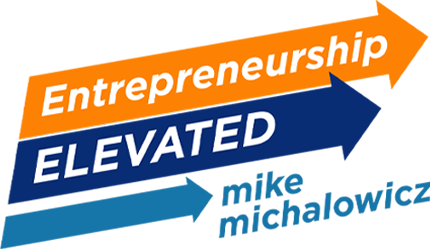If you run a food businesses you know the Squeeze: continuous pressure on price alongside heavy costs for both raw ingredients and labor.
The squeeze is the same whether you’re a farmer, food manufacturer, baker or restaurant owner: your product is essential to human survival. Everyone eats. But producing a high quality product at a reasonable cost with room for profit is a never-ending challenge.
Still, I know it can be done! I’ve worked with dozens of food companies to implement Profit First, create growth plans, and raise capital to grow both profits and scale.
Still, I’m constantly looking for ways to improve financially health and stability of companies in this industry. So last month I interviewed six experts that work with and invest in growth stage food businesses to learn their tips and tricks.
The experts include three investor-backed accelerator programs, one investor, an advocate for sustainable seafood companies and a leading industry magazine publisher & editor.
Here’s their advice for how to build a profitable company –PLUS the immediate steps you can take right now to improve profitability before Christmas:
The most important thing you can do to build profitability:
Develop a maniacal focus on the consumer; then focus on meeting the need of the consumer — in a cost effective way.
Andrew Ive, FoodX Accelerator
For a small business; generally you have to increase sales to find economies of scale in your other costs. To increase sales; hire people. Then get the right equipment and proper infrastructure; gain efficiencies – get a better margin.
Monica Jain, Fish 2.0.
For companies making a food product you must clearly differentiate your product in a crowded market place. Always ask yourself, what would keep the big guys from doing the same thing? If you can’t make the difference clear and visible you’re essentially selling a commodity. Also, if you make products with health claims; Its not enough to make a claim: Document the impact your product can have on health. You need science to back-up claims.
Renske Lynde, Co-founder & Managing Director, Food System 6 Accelerator
Many people make the mistake of thinking that scale will achieve profitability, but if the unit economics aren’t sustainable then growth will lead to death. Unit economics doesn’t just mean the gross margin. Be sure you understand how to make every aspect of the business repeatable and scalable: aggregation, ingredient purchasing, production, fulfillment, customer experience and customer retention.
Shen Tong, Food Future Incubator
For a company to be financially sustainable you have to pay yourself! If you’re not taking a salary you are making a loan to the company and need to get paid back in the future; include any salary payments you miss as a loan on your balance sheet and keep track of just how much you’ve lent the company. When people don’t account for their time and effort they get resentful. It also gets harder and harder to pay yourself later. You have to build this into your business from the beginning.
Derek Denckla, Investor and founder of Slow Money NYC; Convener Food+Enterprise Summit
Bringing in revenue is the hardest part of any business. Even if you produce a wonderful product, if you don’t connect with customers and actually make the sale, it doesn’t work. I think more important to focus on revenue than simply cutting costs. It’s important to be lean in this day and age, but you cannot save yourself into success.
Brian Halweil, Editor in Chief
Edible Brooklyn, Edible East End, Edible Long Island, Edible Manhattan
One thing you can do in the last 10 weeks of 2016 to end the year on a high note:
The number one thing you can do to get more customers (and get to know their needs) is to talk with people. The one action you can take is to meet people: make friends with people; especially people in your industry – distributors, other business owners, retail store owners or buyers. Start now to talk to people and build relationships.
Andrew Ive, FoodX Accelerator
Right now you can look for inefficient parts of your business and how to change the elements that aren’t performing well. Make whatever changes you need to make right away. Show that you can see the problem and act. Young businesses have a lot of product lines and sales channels. But if you are delaying the decision point (about cutting out services or products) because its too painful then now is good time to clean them off your balance sheet so you’ll be leaner going into the new year.
Derek Denckla, Investor and founder of Slow Money NYC; Convener Food+Enterprise Summit
The really important thing to do right now is talk with your customers – make sure you know what they are valuing. Let them tell you what to focus on.
Monica Jain, Fish 2.0.
This is a good opportunity to take time to really figure out how to optimize your business and how to position yourself. Drill down into unit economics, market penetration, and market share. Build your base for growth in 2017.
Shen Tong, Food Future Incubator
This is a perfect time of year to say thank you to your existing customers and vendors and suppliers and anyone you do business with. It also puts you in a good position for rekindling relationships and getting new customers in 2017. If you are the sort of business that sells something on an annual or subscription basis, this is also a good time of year to offer an incentive for committing now for 2017. If you incentivize early payment that’s another great way to get revenue in the door.
Brian Halweil, Editor in Chief
Edible Brooklyn, Edible East End, Edible Long Island, Edible Manhattan
My best advice? Set specific and clear goals for each part of your business: revenue, profits, operating efficiency, and social and environmental impact. Then obsessively track your progress in a public way. Share your goals with your team or colleagues; post them on the wall in your office. Then get to know and love your numbers.
To help you rock the end of 2016 – and all of 2017, download a Growth Toolkit from CFO on Speed Dial.
Christine Rico is the founder of CFO on Speed Dial and a CFO consultant to local, sustainable and healthy food companies. As a Profit First Professional with 25+ years of experience in business development, financial management and coaching she supports food business owners with critical financial decisions and building profits.











